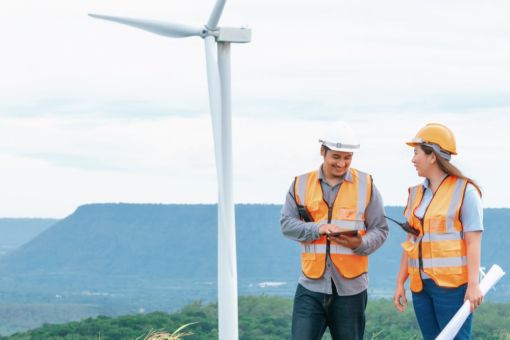Almost three quarters of global greenhouse gas emissions are attributed to energy consumption, including electricity, heating, and transportation.1 The role of energy organisations in combating climate change and implementing decarbonisation is growing. Through their work, they can help organisations and communities achieve net zero emissions and decarbonise their operations.
For the energy sector to become net zero by 2050, US$3.5 trillion in additional capital expenditures will be required.2 During this transition, energy companies will likely add new fuel sources to their energy mix, build new grid infrastructure, and implement energy storage systems to accommodate intermittent renewable sources. Additionally, they should become involved in energy efficiency and demand-side management initiatives for their customers.
The second edition of Plugged In Magazine examines a variety of ways in which energy companies can participate in efforts to slow climate change. This can include decarbonising their assets and extending this to their customers and society at large, such as investing in new energy technologies and working with companies and communities that have set ambitious carbon reduction targets.
Read the articles
Get in touch
One of the most significant risks of our lifetime is climate change, which requires our utmost attention and immediate action. Taking climate goals into account means reducing risks and seizing opportunities to be at the forefront of the transformation to a net-zero world and achieving those goals.
If you'd like to explore these opportunities for your business, please contact Colm O'Neill, Head of Energy, Utilities and Telecoms.
Michael Hayes
Partner, Global Head of Renewables
KPMG in Ireland
Colm O'Neill
Partner, Head of Energy, Utilities & Telecoms
KPMG in Ireland





